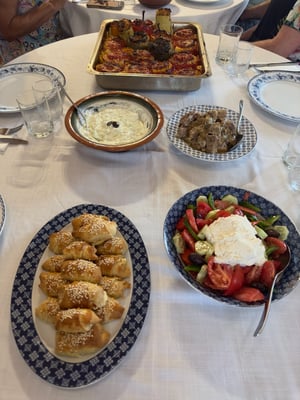Culinary tourism is one of the biggest trends to hit the travel industry in recent years. But we believe culinary travel is much more than a trend. More and more we see it as a facet of travel that allows a greater immersion in the culture of the destination. Food may not drive the choice to travel entirely but ask any one just returning from a grand adventure to another place about their favorite experiences of the journey and the traditional foods prepared locally are sure to be at the top of the list.
The special allure of culinary tourism is that it allows you to experience a culture by tasting the foods they appreciate in the arena where they create it. Or, as the World Food Travel Association describes it “traveling for a taste of a place to get a sense of place”. The entirety of the culinary travel experience is a much deeper experience than simply taking a trip. And the purpose of the culinary adventure is, at its heart, designed to help you feel the destination in every one of your senses. That is what turns a vacation into a trip of a lifetime with memories that are hard to forget.
How is Culinary Travel Enjoyed
Food is relatable. People from all over the world appreciate a superb meal, a bite or a sumptuous sweet. A glass of wine in view of the vineyard where the grapes were grown or dipping your bread into olive oil that harbors the tastes of the grove you visited can transport you and become a more treasured experience than dining in a coveted Michelin star restaurant. Sitting down at a table in a local home where you’ve helped prepare the meal is far more authentic and you learn a thing or two about the food. Even if all you learn is to slow down, relax and taste what you’re eating.
Don’t simply enjoy the markets in Provence but get to know the vendors and sample their offerings. Steep yourself in the ambience of a region like Bordeaux; go visit the vineyard where the grapes are grown, talk to the family who lovingly tend their vines and coax the beautiful grapes along the path to your glass. In Tuscany enjoy a wine tasting, yes, but learn the stories behind the wine.. dine at a local restaurant and savor a bespoke dining experience. In the Greek Isles enjoy an afternoon dining on fresh food so flavorful it’s about as good a food experience as it gets. Anywhere you roam you’ll find ways to get to the heart of the region, the city, the village and be treated like family.
Engage Your Senses and Connect With the World
Food, whether you help to prepare it via a cooking lesson or simply enjoy the fruits of someone else’s culinary talents, is an art and in a fast paced society such as where we live that art is often lost. Even a simple salad, prepared with ingredients that are in season and often right out of a local garden, bursts with flavors you may have forgotten exist.
See the colors of in-season produce, feel the tender meats as they touch your tongue, catch the scent of olive oil, an aroma that has enticed entire civilizations pretty much since time began and listen as the breeze lifts and rustles the vines in a just-harvested vineyard before the vines go dormant, or the food vendors call as he beckons you forth to sample his cheese on market day. When you observe how the food is grown and prepared and the serious business of locally sourced foodstuffs you begin to have a deeper understanding of the culture.
Culinary Travel Offers History You Can Taste
The best culinary tour doesn’t simply offer the tastes of big cities but a curated experience. Travel to medieval villages that are like a trip back in time. Go where the locals still make pasta outside their door or create a meal around the true catch of the day. Here the local lore and stories dating back centuries from those who grew up knowing the facts or fables as told to them by a long-ago family member. Some of the best stories unfold over a wonderful meal and great glass of wine.
Famed chef and eager adventurer, the late Anthony Bourdain, once said “Travel changes you. As you move through this life and this world you change things slightly, you leave marks behind, however small. And in return, life—and travel—leaves marks on you.” This lovely mark is made so much more indelible when it is accompanied by that tantalizing taste of history and the gastronomic revelations uncovered during culinary travel.
Share this article
-
Share on Facebook
Share on Facebook
-
Share on Twitter
Share on Twitter
-
Share on WhatsApp
Share on WhatsApp
-
Share on Pinterest
Share on Pinterest
-
Share on LinkedIn
Share on LinkedIn
-
Share on Tumblr
Share on Tumblr
-
Share on Vk
Share on Vk
-
Share on Reddit
Share on Reddit
-
Share by Mail
Share by Mail



